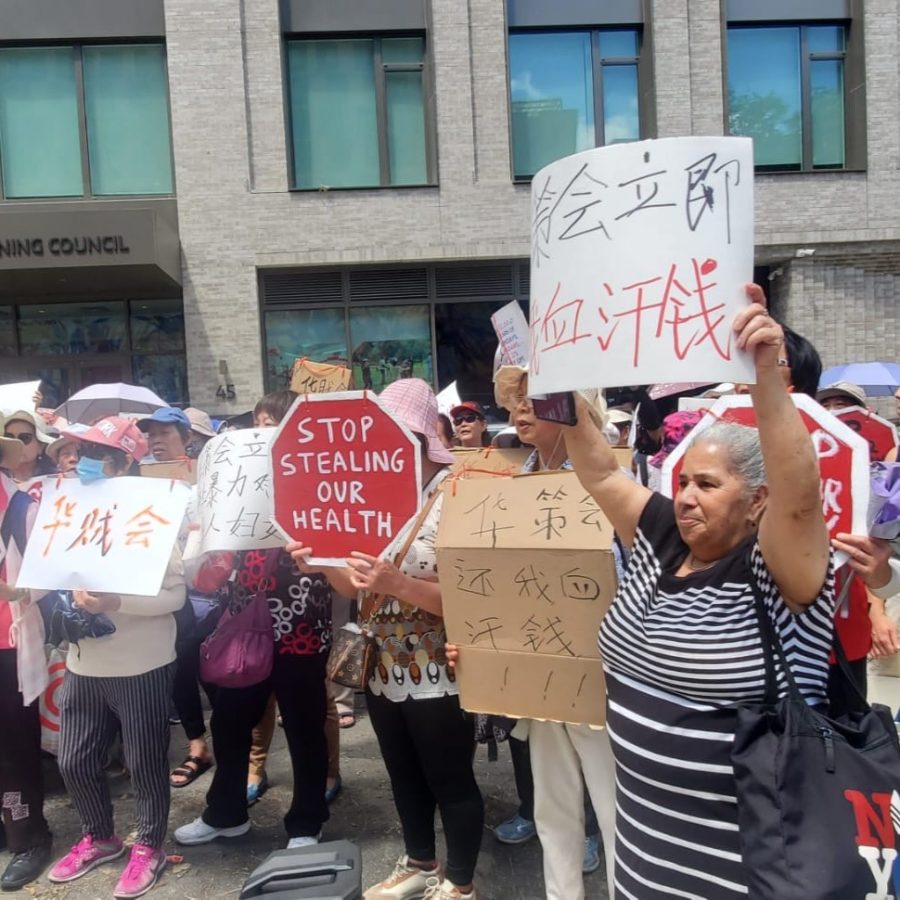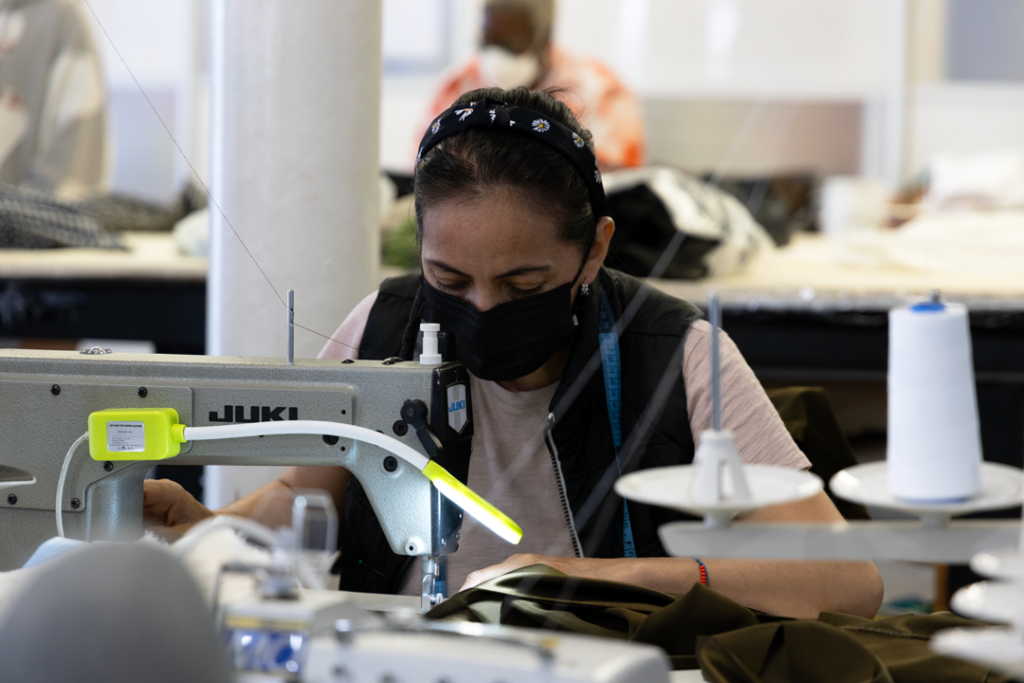NYC’s home health care workforce, largely comprising immigrant women and women of color, is expected to double in size in the coming years, as the city’s population ages.
Many home health care agencies require employees to work 24-hour shifts but pay for only 13 of those hours—deducting 11 hours for sleeping and eating. In reality, patients often require around-the-clock care, and few workers receive the breaks or compensation they are entitled to, jeopardizing both the health and livelihood of workers and the quality of patient care.
With The Trust’s support, National Mobilization Against Sweatshops (NMASS) partnered with Chinese Staff & Workers Association, Flushing Workers Center, and Women Against Racist Violence to train home health care workers to advocate for legislation to eliminate their 24-hour shifts. As this advocacy continues, some employers have quietly started to phase out 24-hour shifts, replacing them with two 12-hour ones.
Luz Estrella has over 20 years of experience as a home health care worker. She currently works for an agency in New York City that still has 24-hour shifts.
As told to The Trust by Luz Estrella. Translated from Spanish by NMASS staff.
“For 12 of the 20 years I have worked as a home health worker, I’ve worked 24 hours—day and night. The 24-hour workday has destroyed the health of all of us home health care workers.
When you’re working with somebody who is very ill and might walk around at night, you need to be constantly on alert. I have bedbound patients whom I have to turn every three hours. I help patients use the bathroom. You can’t ever sleep.
When we go to the agency to apply for work, if we ask not to be assigned 24-hour shifts, we are told we will not receive any shifts and that there is no work for us. We are obligated to take the 24-hour shifts because we need to pay our rent.
In addition to us more experienced workers, there are so many young people who are working very hard, and this campaign is also for them. If we can divide shifts into two 12-hour shifts, it means more shifts for more people and more opportunities for young people. I want this justice for my grandchildren. I want to make things right for them.
Through NMASS, I have learned so much, met so many people, and formed a community. Before, I was really shy. But now, if I need to speak up, I speak up. I’ve lost my fear of speaking up about the work conditions. I’ve met all these beautiful people, and they have supported me. I’ve seen how our unity is our strength. By organizing to stop this racism that says it’s okay for immigrant women to work 24-hour shifts, we are inspiring many others to come forward to defend their rights.
We will continue fighting. And we will never give up until we end the 24-hour workday and the agencies pay back the money that they owe us. We need to keep going out there and gaining more support to tell elected officials that the 24-hour workday must end.”




